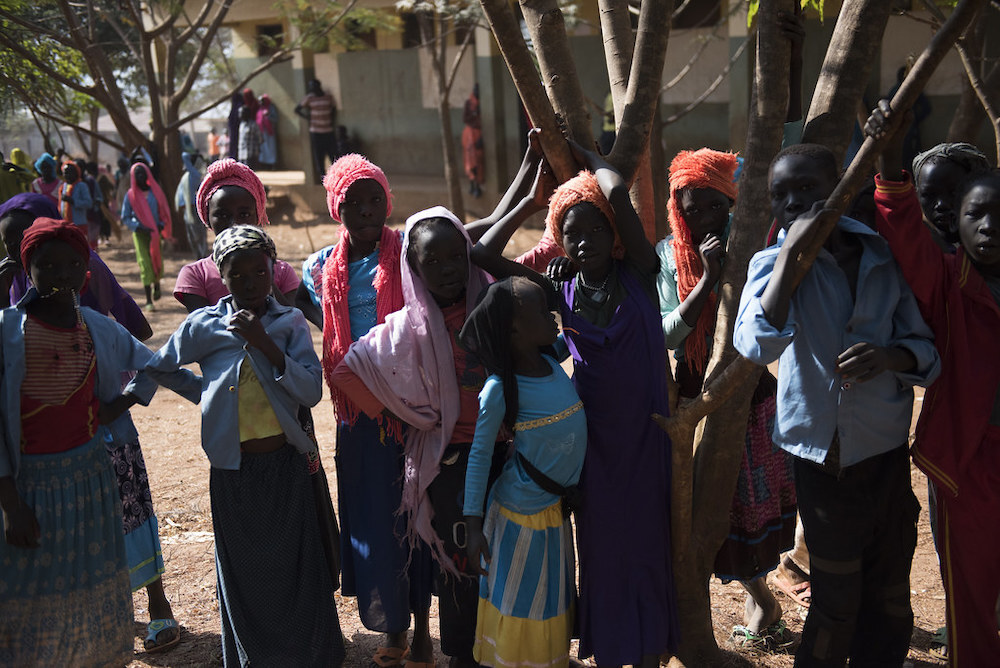
Five things you need to know this week about global education

Children in conflicts, Education funding, Education in emergencies, Teachers and learning
UN education envoy Gordon Brown tells world leaders "to step up and ensure adequate funding" for Education Cannot Wait's mission to help children in crises.
Brown’s funding plea as Education Cannot Wait helps 4.6m children
Gordon Brown has called for world leaders to “step up and ensure adequate funding” for Education Cannot Wait (ECW), the global fund for education in emergencies.
The United Nations Special Envoy for Global Education said the pandemic had been a “crisis within a crisis” for millions of children caught up in conflicts, forced displacement, climate-induced disasters and long-running emergencies.
His comments came as ECW released its Annual Results Report 2020, which showed it has reached more than 4.6 million children and adolescents (half of them girls) with quality education in more than 30 of the worst humanitarian crises.
Issued on World Teachers’ Day on October 5, the report also revealed the fund has recruited or financially supported almost 150,000 teachers and provided more than 2.6 million children and adolescents with learning materials. ECW’s Covid-19 education in emergency response also helped another 29.2 million vulnerable girls and boys and 310,000 teachers in 32 crisis-hit countries and regions.
One student helped by ECW is Aichata, 15, from Ségou, Mali. Funding from ECW meant her school could provide her with a solar-powered radio to allow her to continue learning when classes were closed. Aichata wants to become a school principal and her dream is for every child in Mali to go to school. She added: “I know it’s ambitious. But I’m sure that one day my dream will come true.”
Brown – who is also Chair of ECW’s High-Level Steering Group – said the fund had increased the number of adolescents reached with secondary education by 50% and more than doubled the number of children reached with pre-primary education.
He added: “An entire generation in emergencies and protracted crisis faces irreversible loss. Among them, an estimated 20 million displaced girls, particularly adolescent girls, are at risk. The Annual Results Report 2020 is a living testimony of how we can resist the threats and stand greater chances of winning the human race.”
Teachers ‘are the key’ to global education recovery
Governments have been urged to prioritise teachers in the global education recovery from the pandemic. The call came as World Teachers’ Day was celebrated with events around the world.
The leaders of three UN agencies and the global teachers’ federation Education International issued a statement, which said learning losses will only be recovered if the world’s teachers are prioritised.
They said the education recovery hinges on increased investment in the well-being, training, professional development and working conditions of teachers. UN research shows 71% of countries have given some priority to the vaccination of teachers – but only 19 included them in the first round of vaccinations and 59 countries have not prioritised them at all.
“Education recovery will be successful if it is conducted hand-in-hand with teachers – giving them voice and space to participate in decision-making,” said the statement by Audrey Azoulay (UNESCO), Henrietta Fore (UNICEF) and Guy Ryder (ILO), and Education International’s David Edwards.
Meals keep children at school in Mozambique
A school feeding programme is helping to keep more than 92,000 children in education in disaster and conflicted-affected areas of Mozambique.
The World Food Programme is providing meals to 168 schools in areas affected by cyclones and insecurity in Cabo Delgado province.
Rosa, a mother of six, said: “There were children who were not going to classes because they did not have to eat. So this project is important to keep children at school.”
Maria Willian, Director of Gurunguire Primary School, said: “When you are hungry you have no energy – no energy for work, no energy for school. Now the situation has improved.”
Haiti students return after quake damages 70% of schools
Children have started to return to classes in parts of Haiti devastated by an earthquake – but 70% of schools are still damaged or destroyed.
About 300,000 students resumed lessons this week in the south-western part of the country affected by the 7.2-magnitude quake in August.
“I am shocked to see how many schools are flattened or damaged due to the earthquake,” said Bruno Maes, UNICEF Representative in Haiti. “The extent of the damage to school buildings is worse than we initially thought. Repairing or rebuilding these schools will take time and resources.”
If classrooms remain closed, UNICEF estimates more than 230,000 children are at risk of dropping out of school. About 150 new schools will be rebuilt and 900 temporary learning spaces set up.
Pandemic widens India’s education divide
India’s school closures and its children’s lack of smartphone and internet facilities during the pandemic have increased an educational divide, UNESCO has warned.
About 248 million students have been hit by school closures since March last year. Nearly 70% of students lacked smartphones or other devices to access classes online, while a majority grappled with poor or no internet facilities, especially in rural areas.
“There is an urgent need to plan to get students and their teachers back to school,” the UN agency said in a report on education in India.
UNESCO called for India to recognise teachers as “frontline workers” in the battle on the pandemic and improve their working conditions to ensure better education outcomes.
More news

